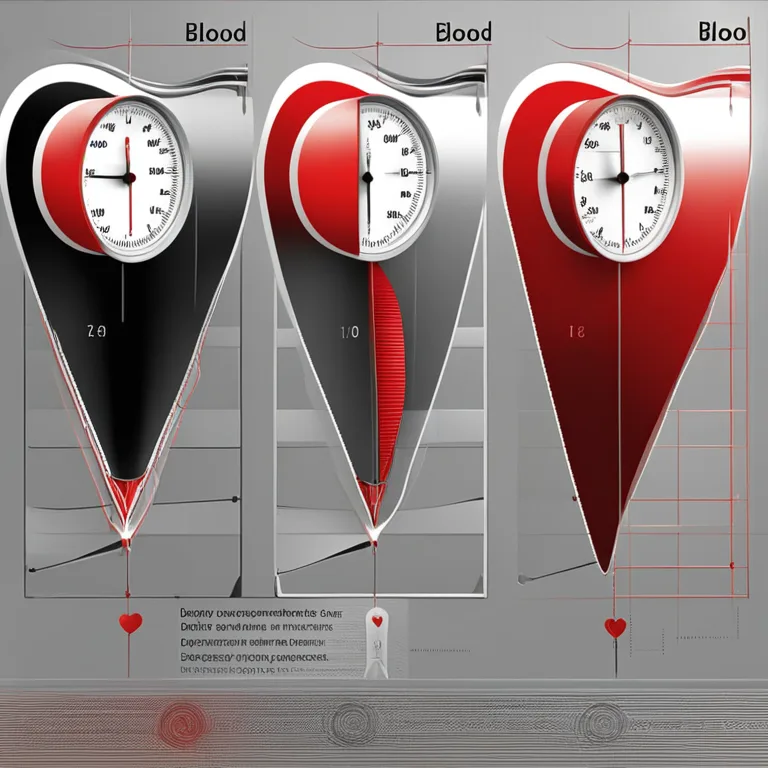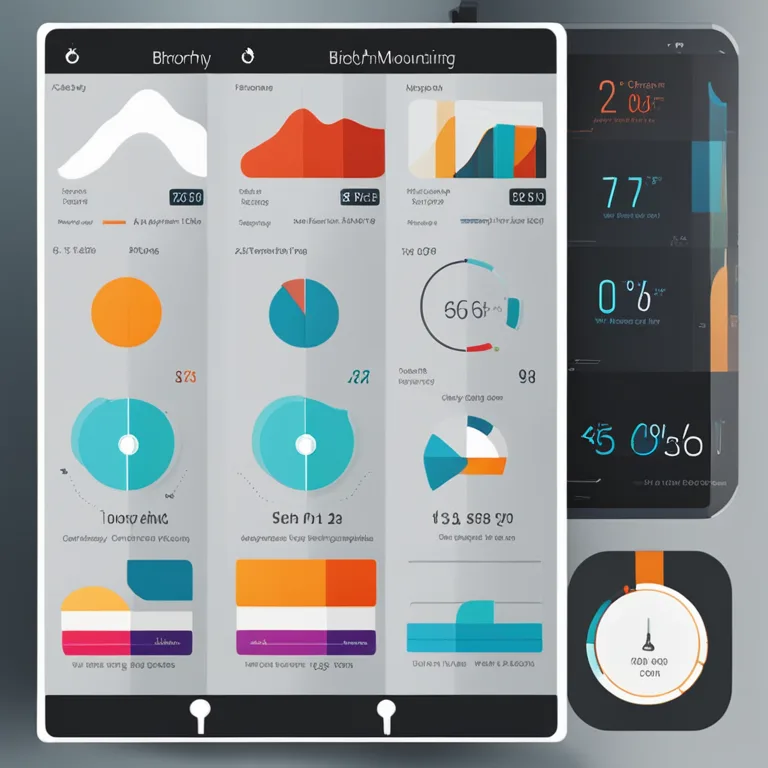
Biorhythms and Blood Pressure: A Holistic Insight
Discover the intricate connection between your biorhythms and blood pressure, and how understanding this relationship can lead to better health and well-being.
article by Adrian Wallace
The Concept of Biorhythms
Your biorhythms represent the natural cycles that regulate various physiological processes, including sleep, hormone production, and metabolism. These innate timers are thought to play a significant role in determining our physical, emotional, and intellectual states at any given time. Originating from the Greek words 'bios' (life) and 'rhythmos' (regularly occurring movement), biorhythms trace their conceptual roots to chronobiology, which studies periodic phenomena in living organisms. Understanding biorhythms seeks to provide insight into the peaks and troughs of our well-being.

Blood Pressure Dynamics
Blood pressure, the force exerted by circulating blood upon the walls of blood vessels, is a vital sign that doctors routinely measure to assess cardiovascular health. It fluctuates naturally throughout the day in response to activity, stress, nutrition, and rest. However, when blood pressure remains consistently high or low, it could signal underlying health issues. Awareness of the cyclic nature of blood pressure could enhance the understanding of individual cardiovascular health patterns.

Interplay Between Biorhythms and Blood Pressure
The intriguing interplay between biorhythms and blood pressure suggests a symbiotic relationship where one influences the other. For instance, the circadian rhythm, our 24-hour internal clock, affects the release of hormones like cortisol and adrenaline. These hormones can cause significant shifts in blood pressure. A better grasp of one's biorhythms could potentially offer clues to managing blood pressure more effectively, aligning lifestyle choices with natural cycles.

Monitoring Your Biorhythms
With technological advancements in wearable health devices and apps, monitoring your biorhythms has become more accessible than ever. These tools can track sleep patterns, activity levels, and even predict stress responses, thereby providing real-time data on when your blood pressure might deviate from its norm. This personalized approach to health monitoring represents a proactive step in managing blood pressure through lifestyle adjustments.

Lifestyle Modifications and Biorhythms
Incorporating lifestyle changes in sync with your biorhythms may optimize blood pressure control. Regulating sleep schedules, consistent meal times, and timed physical activity can harness the power of biorhythms for favorable blood pressure management. The emerging field of chronotherapy, which involves timing medication intake to coincide with biological rhythms, also shows promise in enhancing blood pressure treatment efficacy.
Future Research and Considerations
As we continue into 2024 and beyond, research into biorhythms and cardiovascular health is gaining momentum. Upcoming studies aim to better understand how syncing medical therapies with biorhythms may lead to improved outcomes in hypertension management. Patients and healthcare providers alike are hopeful that this integrated approach will unveil new frontiers in personalized medicine and overall wellness.
Conclusion
The relationship between biorhythms and blood pressure encapsulates the complexity and interconnectedness of our bodily functions. Appreciating this holistic link might not only pave the way for innovative health strategies but also encourage a greater sense of harmony with our natural physiological rhythms. As we adapt to the demands of modern life, acknowledging the influence of biorhythms on blood pressure is an empowering step towards enhanced health and longevity.
Published: 12/28/2023
Modified: 12/28/2023
More predictions
Come back here soon to learn more about yourself and your future


The Practical Uses of Biorhythms in Our Lives
Discover how biorhythms can be applied to improve well-being and achieve a better understanding of personal cycles in health, decision-making, and relationships.


Biorhythm: The Significance of Compatibility
Discover the significance of biorhythm compatibility in relationships and how syncing life cycles can impact partnership dynamics.


The Mechanics of Biorhythms: A Comprehensive Guide
Discover how biorhythms influence your daily life with this detailed guide to the rhythms that govern our physical, emotional, and intellectual states.